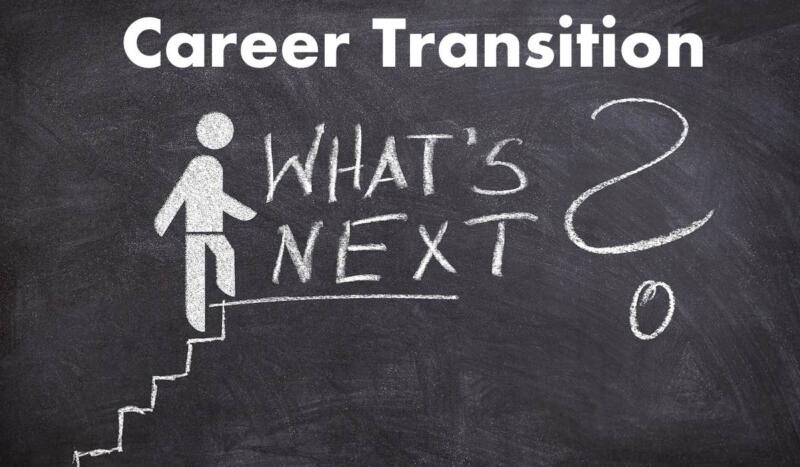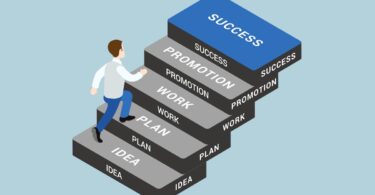Are you feeling stuck in your current job? Do you want to explore new opportunities and challenges? If so, you might be considering a career transition. A career transition is a process of changing your occupation, industry, or role. It can be exciting, rewarding, fulfilling but also daunting, stressful, and risky. That’s why you need to plan and prepare yourself for the journey. This article will share the top 10 tips for a successful career transition. These tips are based on the insights and experiences of various experts and professionals who have gone through career transitions themselves. Whether you want to switch to a different field, start your own business, or pursue your passion, these tips will help you navigate the challenges and opportunities of a career transition.
Here are the top 10 tips to help you navigate your career transition successfully:
Table of Contents
1. Assess Your Situation and Goals
Before you embark on a career transition, you must clearly understand your current situation and future goals. What are the reasons behind your desire to change careers? What are you dissatisfied with in your current job? What are you passionate about and good at? What are the skills and qualifications that you have or need to acquire? What are the values and interests that drive you? What are the types of jobs or industries that appeal to you? These are some of the questions you must ask yourself to assess your situation and goals. You can use various tools and methods to help you with this process, such as self-assessment tests, career coaches, mentors, or online resources.
2. Do Your Research
Once you have a general idea of what you want to do next, research the career paths or options that interest you. You need to gather as much information as possible about the skills, qualifications, responsibilities, challenges, opportunities, trends, and prospects of the careers that you are considering. You can use various sources of information, such as online databases, job boards, industry publications, professional associations, or social media platforms. You can also talk to people who work in the fields or roles you are interested in, such as alumni, colleagues, friends, or contacts from your network. You can ask them about their experiences, insights, advice, or referrals.
3. Assess Your Skills and Gaps
Next, evaluate your current skills and identify what you need to learn or improve to succeed in your new career. List your transferable skills, such as communication, problem-solving, teamwork, and leadership. These are skills that can be applied to any job or industry. Then, list your specific skills, such as technical, creative, or analytical skills. These are skills that are relevant to a particular job or industry. Finally, make a list of the skills that you lack or need to update. These are the gaps that you need to fill.
4. Enhance Your Talents and Knowledge
One of the biggest career transition challenges is bridging the gap between your current skills and knowledge and those required for your new career. Based on your skills assessment, plan how to acquire the skills you need for your new career. You may need to develop new skills or update your existing ones to meet the demands and expectations of your desired field or role. You may also need to learn new concepts or terminologies specific to your new industry or sector. You can enhance your skills and knowledge in various ways, such as taking courses, workshops, seminars, or certifications; reading books, volunteering, interning, articles, blogs, or podcasts; watching videos, webinars, or tutorials; practicing exercises, projects, or simulations; or joining mentorship, coaching, or peer learning programs. Choose the method that suits your budget, schedule, and learning style. Set realistic and measurable goals for your learning progress and track your achievements.
If you find article useful, don't miss out on the valuable insights and information available in our other related posts:
- Things to Consider When Choosing a New Career Path
- The Role of an Environmental Health Officer (EHO): Key Responsibilities, Challenges & Salary
- How to Become an Environmental Health Specialist
- How to Restart Your Career at 30, 40, or 50 – A Step-by-Step Guide
- Career Paths in Environmental Health: Research to Public Policy
5. Update Your Resume and Portfolio
Updating your resume and portfolio is another essential step in preparing for a career transition. Your resume and portfolio are the tools that showcase your skills, qualifications, achievements, and potential to prospective employers or clients. You need to tailor them to fit the specific requirements and expectations of the careers that you are targeting. You need to highlight the relevant skills and experiences that demonstrate your value and suitability for the new roles or industries that you are pursuing. You also need to use keywords and phrases that match the ones used in the job descriptions or advertisements that interest you. You can use online tools or services to help you create or improve your resume and portfolio.
6. Network and Build Relationship
Networking is one of the most important aspects of a successful career transition. Networking can help you learn more about the careers that interest you, find out about job openings or opportunities, get referrals or recommendations, or establish connections with potential employers or partners. Networking is not just about exchanging business cards or sending LinkedIn requests. It’s about building genuine connections and trust with people who share your interests and goals. You can network in various ways, such as attending events, workshops, seminars, or conferences related to your desired field or industry; joining online groups, forums, or communities; reaching out to people via email, phone, or social media; asking for informational interviews or meetings; or volunteering for projects or causes that align with your goals.
7. Be Flexible and Adaptable
A career transition is not a linear or predictable process. It can take longer than expected or involve unexpected twists and turns. You might face rejections, setbacks, or obstacles along the way. To overcome these challenges, you need to be flexible and adaptable. Be open to different options and opportunities that might come your way. Be willing to adjust your plans and strategies as needed. Be ready to learn from your mistakes and failures.
8. Seek Support and Guidance
A career transition can be stressful and overwhelming at times. You might feel lonely, frustrated, or doubtful about your decisions or abilities. That’s why it’s important to seek support and guidance from people who can help you cope and succeed in your transition. You can seek support from friends, family, mentors, coaches, counselors, or peers who can offer emotional support, practical advice, feedback, or encouragement.
9. Celebrate Your Wins and Milestones
A career transition is about reaching the final destination and enjoying the journey along the way. You should celebrate every win and milestone you achieve in your transition process, no matter how big or small. Celebrating your wins will boost your confidence, motivation, and happiness. It will also help you appreciate how far you have come and how much you have learned.
10. Trust Yourself and Enjoy the Process
A career transition is not a destination but a journey of exploration, discovery, and growth. You need to embrace the journey with curiosity, optimism, and gratitude. You can embrace the journey by enjoying the process, focusing on the positives, learning from the negatives, reflecting on your progress, and celebrating your achievements. Remember that a career transition is a personal choice only you can make for yourself based on what makes you happy and fulfilled. Don’t let others’ opinions or expectations influence or discourage you from pursuing your dreams. Trust yourself and the process leading you to where you want to be. Enjoy the process of discovering, learning, growing, and transforming yourself and your career.
The Bottom Line
A career transition can be one of the best decisions you can make if you are ready for a change. Following these top 10 tips can make your career transition a successful and rewarding experience.





